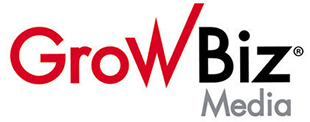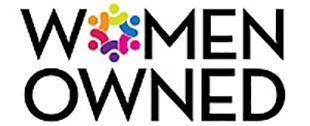The past year set a new record for small and midsize business (SMBs) growth. More than 5 million new business applications were filed, making 2023 the strongest year of new business applications on record. Each of these applications represents someone’s passion and entrepreneurial spirit, a feeling I know well!
Running an SMB is so rewarding, but it also comes with unique challenges. I experienced this firsthand when I owned my own small retail business selling children’s toys and clothing. The lessons I learned from running a small business gave me the foundations I needed to help shape some of the biggest and most loved brands in the world, including LinkedIn, Yahoo!, and now BILL.
In my current role at BILL, I spend a lot of time talking to SMBs. Businesses like Dagne Dover or joe coffee who inspire us with their innovation and resilience. I also often find myself reflecting on my days as an entrepreneur – what I would’ve done differently, or should’ve known.
For every entrepreneur who has started their own business in the last 12 months, you are embarking on a thrilling (and at times teeth clenching) adventure. To help you on your journey, here are four things I wish I had known when I started my own business.
1. The flexibility of being your own boss can, ironically, be quite inflexible.
Being your own boss can sound like a one-way-ticket to flexibility and work-life balance. The reality is that running a business can consume you, if you are not careful.
Without the right guardrails in place, the responsibility of making every decision can stop feeling empowering and start putting a huge strain on you, both professionally and personally. If I was sick, and that meant I couldn’t open the store, I would wind up in a situation where I was forced to choose between my business and my wellbeing.
Every entrepreneur wants to feel pride and ownership in their business — without feeling shackled to it. To overcome this, I needed to ensure there was flexibility in my business model. This involved building a reliable team, developing processes that could run smoothly in my absence, and learning how to delegate effectively (a crucial skill, but one that can be tricky to become comfortable with).
By shifting my perspective and putting systems in place to help make my role less “mission critical” I was able to set boundaries around my personal life without sacrificing the growth potential of my business.
2. The importance of a strong network cannot be overstated.
Relationships are everything not just in our personal lives, but in the professional world too. Having a strong network of other business owners and colleagues can be a defining factor in growth and success.
While I initially underestimated how valuable this could be, I quickly learned how vital these relationships are. As I became more connected in the business community, my network became crucial for recommendations and support. The most trusted form of organic marketing will always be word-of-mouth referrals, and my connections helped me reach new customers.
But beyond the free advertising, I also had a trusted circle of peers that I could turn to when I needed guidance that only another business owner could provide. This could be on everything from tricky customer service issues, to recommendations on tools and technology, to strategies for engaging with the community. They provided advice on how to solve my challenges based on their own experiences, and this helped to inform my decision making and let me avoid making the same mistakes.
3. You are going to make a lot of mistakes.
It’s easy to get caught up in your mistakes – and some days it felt like I was wrong all the time.
I did a lot of research prior to opening my business, and then I used that research to inform my decision making. While research is important, so is real-life feedback and experience. “Trial and error” is a part of every great invention, and every great business.
Why? Because most of us are doing things for the first time, without a roadmap or perfect data. In fact, the single biggest lesson I learned as an entrepreneur was how to confidently make decisions with incomplete information. This skill has been a game changer in every aspect of my career – from my own business, to marketing for major brands, to my work on the agency side – and has also been applied to my personal life.
You are never going to have truly complete information. So, instead of being stuck on what you don’t know, you have to figure out how to get comfortable with trusting yourself, listening to your intuition, and making the best judgment on how to move forward.
You’re going to make a wrong move at some point – like I said, it’s inevitable. The only problem with mistakes is if you keep repeating the same ones. Be decisive, implement and learn, and then act quickly to adapt as needed.
4. Innovation does not have to be expensive, but it does have to be impactful.
You need to be innovative to remain competitive. It’s a simple truth.
Innovation can take many forms, but one of the most important is continually improving and enhancing customer experiences. Having a customer-centric mindset is essential.
It’s not always about spending more and making huge investments in cutting-edge technology. Instead of viewing innovation as a financial investment, identify new ways to delight your customers using the resources you already have.
Here’s an example: when I was running my own business, we created a loyalty program to encourage repeat customers and reward them for coming back. We considered creating a tech-based loyalty program, but decided to start with physical cards to test customer interest before making the investment. In the end, physical cards ended up being exactly what we needed to make the loyalty program a success, and a more expensive option was not necessary.
The key to standing out from the competition will be understanding the evolving demands of your customers and finding a unique way for your business to keep meeting their needs.
Bonus: this experience is unlike any other.
I wish I knew not only how hard running a business would be, but also how rewarding. Wearing every hat (often simultaneously) can be very stressful, but is also an incredible learning opportunity.
This is part of the reason why I came to BILL. My career was irrevocably shaped by my experiences as a small business owner, and our close relationship with our SMB customers gives us a front-row seat to their challenges and successes.
Each of those 5.5 million new business applications represents an idea come to life and a story waiting to be told. I am excited to see, and be inspired by, these stories and journeys for years to come.
Sarah Acton is the Chief Marketing Officer at BILL.



